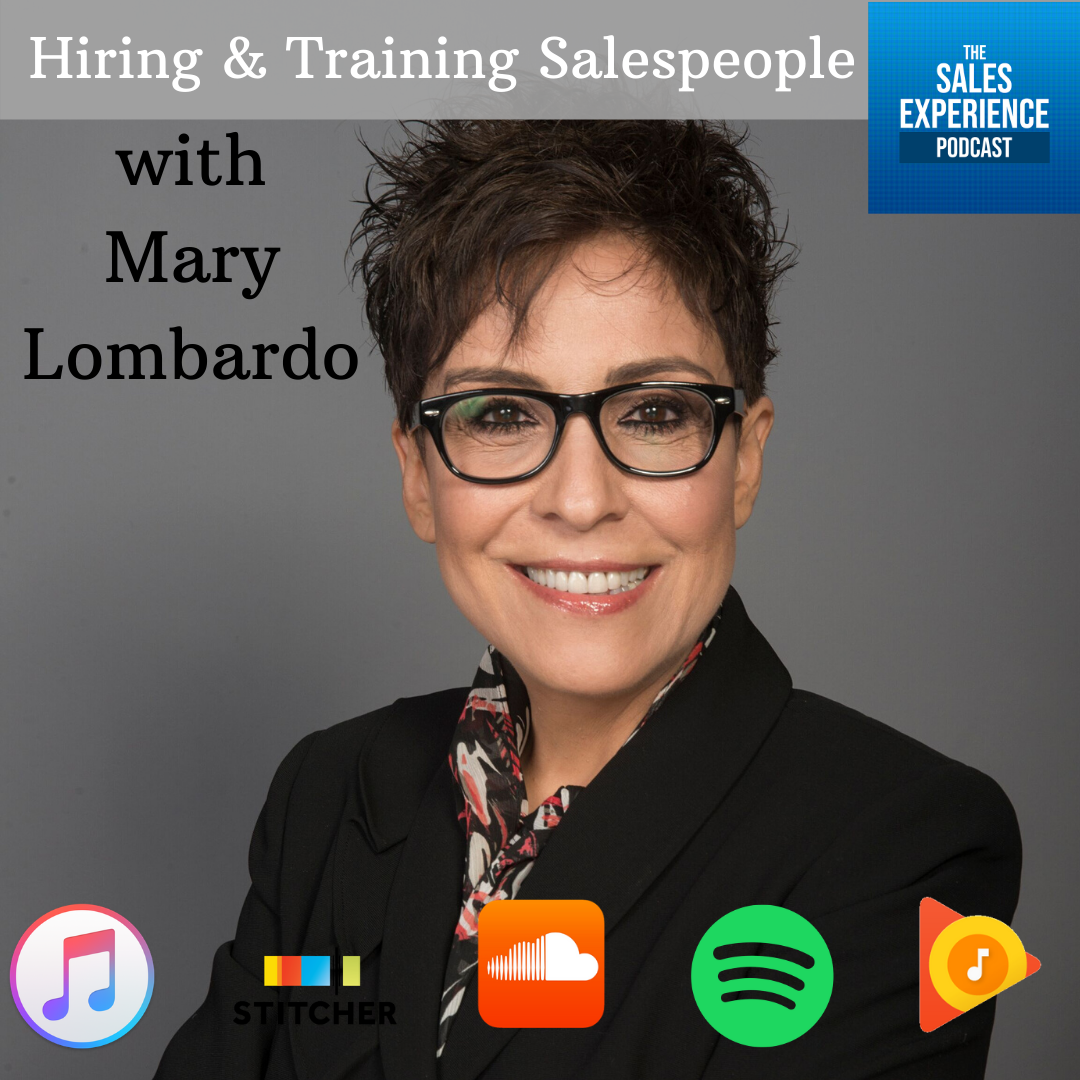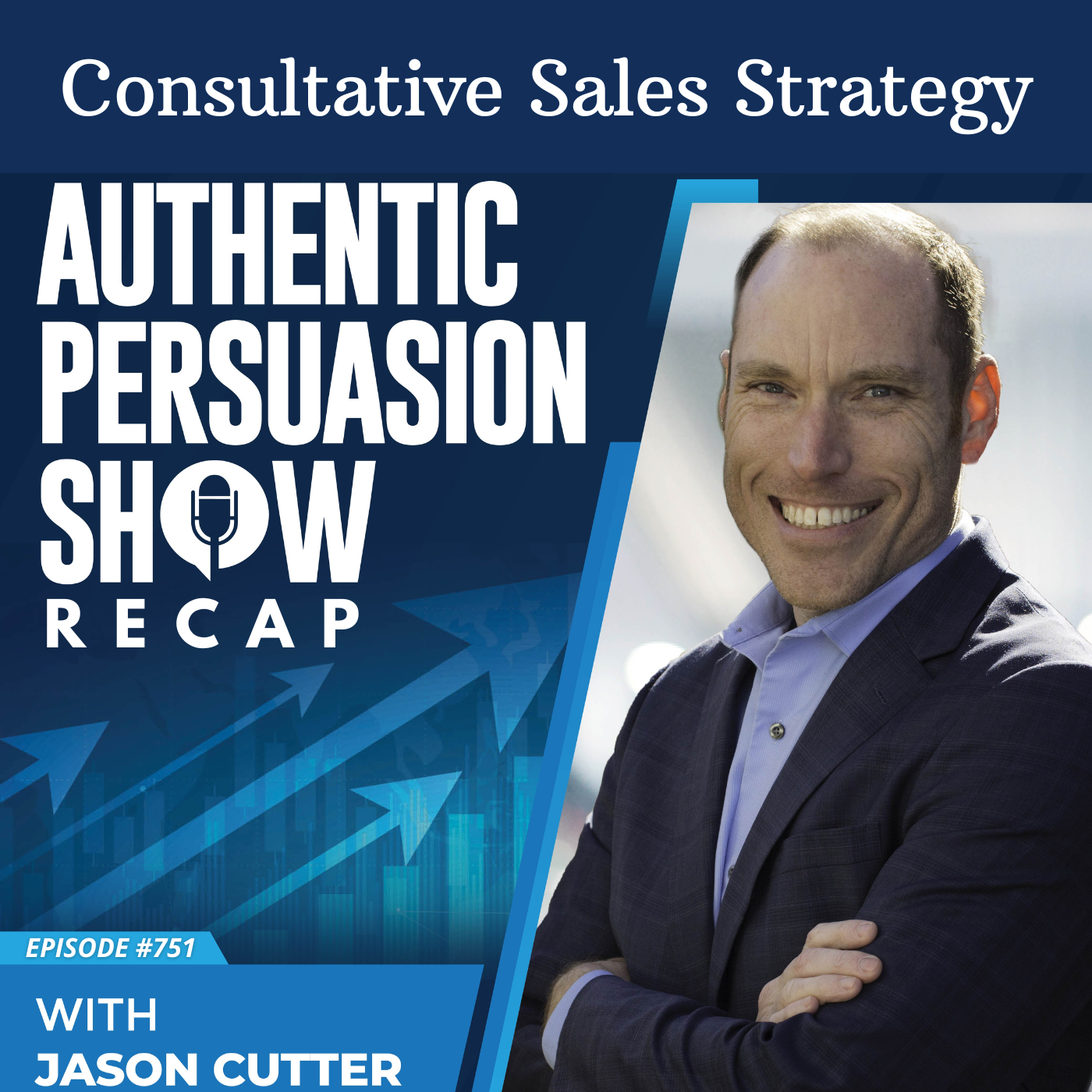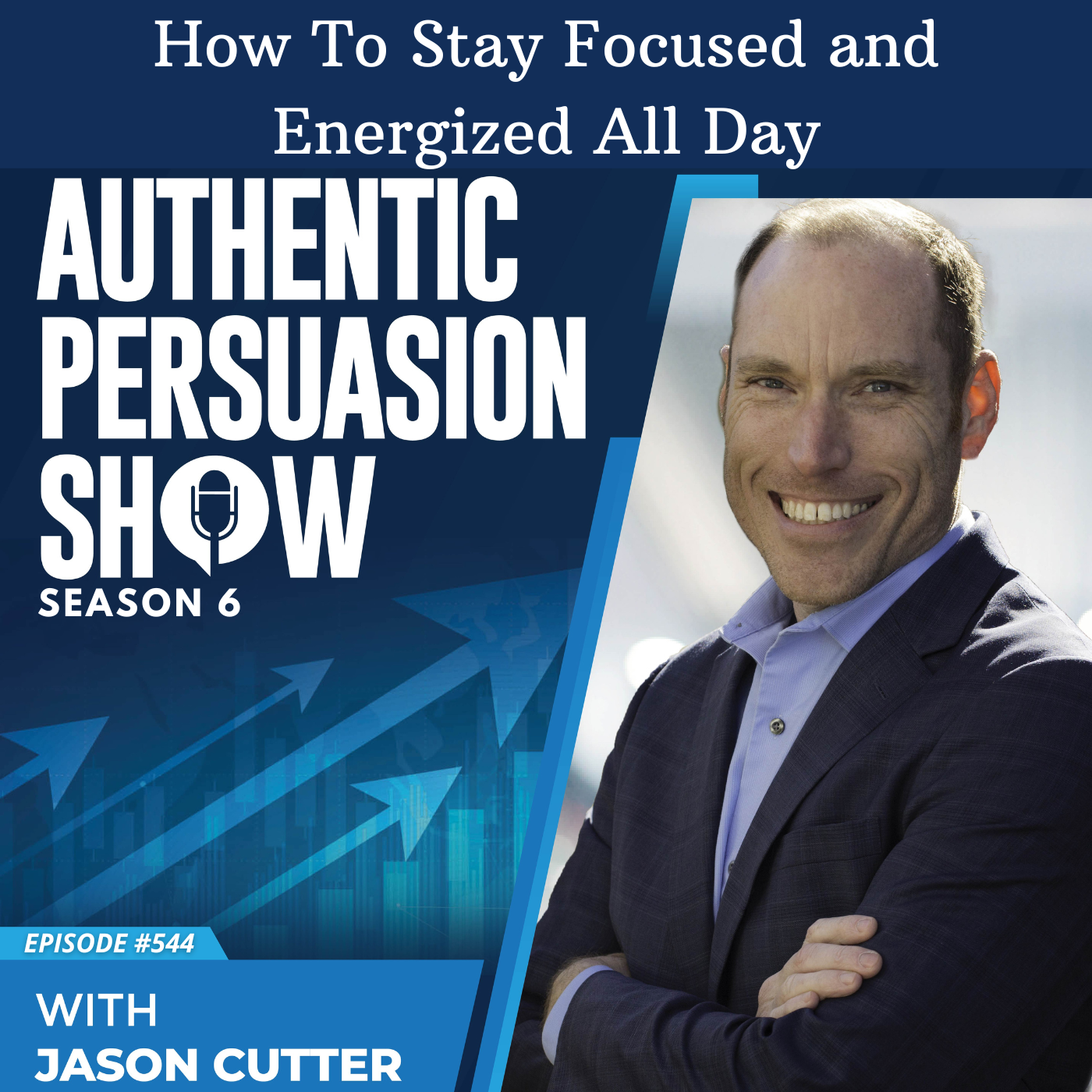Episode Transcript
Jason: Welcome back to the sales experience podcast. Welcome to part three of my conversation with Peter Kozodoy. If you didn't Make sure to check out part one and two, as always subscribe so that you get all of these episodes every single day, leave a rating, leave a review, share it with anybody in sales, anybody who realizes that's everything in life is sales.
Make sure to share with them. Here you go. Here's part three. Enjoy.
Peter: And at the end of the call, they're like, Oh. Wait, what do you do again? Oh yeah. No, that sounds good. All right. Let's do that. Wow. You really understood me. You just talked like, that's it. It's that easy. So yeah, no, great lesson.
Jason: Just like a good therapist, right?
A good therapist job is to just ask questions and get you thinking and help you walk yourself through good. Salesperson is doing the same thing. It's not about monologues and features because the thing is once the therapy session is over or the sales process is over. That person is going back into their life in their head.
And when they wake up at two o'clock in the morning, are they going to be happy and excited because they bought it for their reasons? Or is it a cold panicky sweat because they got talked into something and now they're regretting it?
Peter: Yeah. A sale isn't always a win.
Jason: Not at all. Let's talk about, to you, what does it mean to be authentic?
Peter: Yeah, I talk a lot about honest alignment. It pains me when folks are living out of alignment with who they really are, and what their core values are, what their beliefs are. You think of the average corporate worker is just not in alignment with the core values that are posted on the wall of the business, by the way, the business usually isn't in alignment with the core values on the wall anyway but all those misalignments, they matter and they show up when people are out of alignment with what they really want in life, or they've buried what they really want under assumptions that aren't true, self limiting beliefs that aren't true, right?
There's so many things. I've worked with hundreds of entrepreneurs helping them build their own million dollar business and it's amazing what people tell themselves One of the stories I tell in my book was of a guy who invented this meter You bolted it on to water pipes at the water company and it could read the flow a lot better and it would instantly Save the water company money, right?
Because of the way it can measure the flow of the water. So I was like, okay, let's create a sales program. Cause he came to me and was like, I can't sell this. I don't know what to do. I'm like, okay, all right, sales program. Great water companies, pretty specific list. We just build a list of them, write some scripts, start calling.
Oh no, I can't do that. I said, okay, why can't you do that? People cold call me all the time. I don't like cold callers. They suck. I would never want to be that guy. I was like, oh, okay. So I just want to make sure I understand. You don't want to make cold calls to water companies because you don't want to be that guy, the cold caller that you don't like.
He was like, yeah, he's like convinced I got it through my like fixed call. He's yes, that's exactly what I'm saying. I was like, okay, cool. No, I just want to make sure I understand. All right. So people that find you now, they just stumble upon your product. They find you at a trade show.
He's Yeah, he's yeah, I do. I do a couple of shows and people find me or one water company called another one time and referred me as a go. Okay, cool. So as one understand that the companies that find you. They buy your products and then they save money. He's yes. He's what are you stupid?
Yes, exactly. I was like, okay, cool. So what you're saying is only the companies that are lucky enough to stumble upon you and find you are the ones that deserve to make money and all the rest of the water companies and all the. people that pay those water bills, they don't deserve to save money. Is that what you're saying?
And I'm silent. And then he goes, yeah, if you put it that way, then yes. Yeah. Okay. We built a sales program that day. So it's amazing the things we tell ourselves, like the stories, the assumptions, all that crap that prevents us from doing what we need to do to achieve the goals that we've laid out for ourselves.
And what I found Jason is no one can sit in a room and figure that out. It's called a blind spot for a reason. If we want to get rid of all those lies, we need to work with other people, a coach, a mentor, a group. I run groups for entrepreneurs for that reason. Without that process, without even the awareness that we have blind spots, nevermind the exploration of them, we're just plain stuck.
We're living out of alignment with what's true. And
Jason: I love that honest alignment kind of perspective on what it means to be authentic. And I completely agree about organizations. And I think the alignment goes even deeper in the individual basis, which I know that you focus on. If you have that Sunday afternoon, evening pit of your stomach because you don't want to go to work the next day and start your work week.
I think life is too short to do crap you don't like. How do you get yourself into alignment? Get honest.
Peter: Yeah, start getting honest. And I give tools in the book. One thing everyone can implement right now is two questions that literally can change your life, which is that true and how do I know?
And this applies to a headline on the news, your great aunt Millie's scandalous Facebook post, or the thoughts and assumptions you have in your head. Just build a practice, a habit of stopping and asking, is that true? And how do I know? How can I test it? Because unless you know that it's true, and you've logically tested it, then what are we doing here?
Your operating system we're like a computer, right? Our whole operating system is built on these levels of assumptions, like assumption I'm going to get up in the morning and my feet will point downward because gravity will still be here, right? That's really likely. But all the other assumptions, like the ones I told you about earlier, those are really harmful unless we get Honest about those even begin to be aware that we have this habit, that we have this addiction to lying to ourselves.
We can't possibly begin to break it.
Jason: And the is it true? And how do I know? All the limiting beliefs, the ideas, I'm just thinking for myself and for others. It's like, how do you know that's true? How do you know that's the only way to do something or the best way to do something or the best way to live or run your business or hire people, right?
Any and all of them. Then the follow up to this, obviously the other formula for me in the authentic persuasion piece is talk about what you think and feel about persuasion in this framework. Okay.
Peter: Yeah, it's so funny you ask because I was on another TV station a while ago talking about the mask debate, right?
It's what do you do when your family members will wear masks or won't wear masks and whatever your stance is What are you doing? Someone else doesn't want to do that. And how do you persuade them? Now, I don't know about you, Jason, but I've never seen work in my life, the following scenario. Someone is refusing to wear a mask, and I come to them and I say what are you, stupid?
Why aren't you looking at all this data? What's wrong with you? I can't believe you would do that. In that kind of situation, that person has never been like, Oh my gosh, you're right. Why am I so stupid? I should have seen it that way. Crazy. I'll absolutely wear that mask now. That's not a thing. That's not how people change, right?
It's not a thing. And yet, by the way, so many of our folks around there in society take that route, right? It doesn't make any sense to me. Instead, like we were saying earlier, it's hey, I noticed that you are, in this situation, not wearing a mask. Can you tell me more about that? What are you reading?
What are you watching? How did you form your opinion? What are you thinking about? Only by being open minded and by understanding where they're coming from can we begin To have an open conversation without ego barriers, and come to a common ground. It takes time, and it takes understanding. And by the way, by the time that you have allowed them to explain their position, who knows?
You may be like, damn, that's actually really good reasons you have there. I didn't think of it that way. I can't tell you how many times, Jason, there's been in conflict, right? I learned this in my late 20s. I've had some sort of conflict in my life, and I said to myself, you know what? I'm just going to pretend it's all my fault.
It's I know it's not, I know it's them, but I'm going to pretend it's my fault. And so what do I do? I'd probably take more deep breaths and I would apologize and I would ask them more questions. And so I started to assume that everything was my fault. And what's crazy? Everything was my fault.
As soon as I assumed it was me, turns out it was. And I was like, oh, wow, that's a good thing. I was open minded enough to even consider that maybe I was not correct. And that alone can help to reach people where they are, and then begin to move them one peg at a time from where they are to where they're going.
Because otherwise, guess what? You're trying to persuade someone to go to a position you don't know are they starting in California? Are they starting in Bali? Are they starting in South America? You don't know where they're starting from. How do you move them? to where you're trying to go. It doesn't make any sense.
Jason: And I love that, especially if we put that in the framework of sales and selling, which is there's the classic model, which is let me talk about the trade show booth example with your inventor, entrepreneur, and walk up to a trade show booth. And all you get is a three minute monologue about how great the company is, what the product is, why you should be using it.
Why the competition sucks and all of that versus literally like my style. And what I teach people is just ask questions, going back to the questions part, right? It's let me understand you and your situation a, to see if it's even a good fit can I even help you? And then B if I can, why? Like where? And I think that just goes into what you're saying with the mask example, which is, let me understand you first and your situation. and see what's true it goes back to the is it true and how do i know you look at people in another very polarizing is just politics right i believe in this you believe in that you're wrong the data shows that you're wrong you're dumb you should come with my political party and it's like that doesn't work for politics it doesn't work for College sports teams.
My team's better than yours. Look at the numbers. That never works.
Peter: Like it just doesn't work. And by the way, I think it should go without saying, I know this is a podcast about sales, which means it's a podcast about everything because everything is sales. Everything that involves another human being is persuasion.
By the way, persuasion and sales even happens in your own mind. I have to sell myself on getting the courage to get up on this podcast, like everything is sales. These skills are so fundamental.
Jason: And that's what I say at the end of every episode. And maybe you've covered it in your experience. What's one trait that you've see successful salespeople do that makes them successful traits, personality, mindset.
Peter: It's an attitude. Like the best salespeople I've seen are just so relaxed. And they're like. I want to be your friend. Like I'm gonna be your buddy and we're gonna have a great time and they like get really like into the person and the human being and the relationship and I really admire that because I'm like a closeted introvert I think.
I haven't tested that. That may not be true but it feels like it. So I have to push myself to really like break past that human To human boundary and that the best salespeople are like, by the end of the day, it's Oh, this is my best friend or whatever. And they haven't talked about like the product or the company or anything else at all.
And when it comes time to talk about that, the person's no, I don't want to hear about any of that. You're cool. Let's just do the deal. And I'm like, how did they do that? So yeah, that I would say is I've always been impressed by that.
Jason: That's awesome. I love it. And I would say I used to think I was the same way too, about being an introvert because people didn't energize me.
It drained me. I didn't look forward to networking events and people and parties. And then I stumbled upon the term ambivert, which is situational kind of energy sources and in the moment versus not. I think that's very applicable to a lot of people because a pure introvert. That's a different thing, right?
Just like a pure extrovert, but then that middle ground where you take it, leave it. It's good. It's not good. It's necessary. You go either way. So what do you think the best salespeople do every day?
Peter: They don't wing it. They stick to the process, stick to the script. That's it. Like the best salespeople are just, I feel like they're not even thinking about, there's no emotion attached to it.
It's just here's the 200 calls. I run the 200 calls and I run the script and that script doesn't work. I change it and I run it again. It's like a computer program. I find the worst salespeople are the ones that are like, get all of it. Oh, I got a hot lead. And then the whole day their mindset's in the hot lead.
And it's okay, so there's one lead. Let's go get 50 more of them. And it's just a that's what I do. That's a thing, right? Just numbers. This is very sort of nonchalance to it.
Jason: All right, that's it for part three. You know the routine. I'll see you tomorrow for part four. Have a great day.
That's it for another episode of the Sales Experience Podcast. Thank you so much for listening. If you find yourself on iTunes, can you leave the show a rating and a review? It helps other sales people and sales leaders find the show. And please subscribe to the show and share episodes you find valuable with anyone you know in sales.
Help me on my mission of changing the way salespeople's lives. Sales is done. And if you're ready to work together, go to Jason cutter. com. Again, that's Jason cutter. com to find out how I can help you or your company create scalable sales success. I will see you on the next sales experience podcast episode, and keep in mind that everything in life is sales and people will remember the experience you gave them.
![[E298] Honest to Greatness, with Peter Kozodoy (Part 3)](https://episodes.castos.com/salesexperiencepodcast/images/Peter-Kozodoy-Cover-Image.png)


